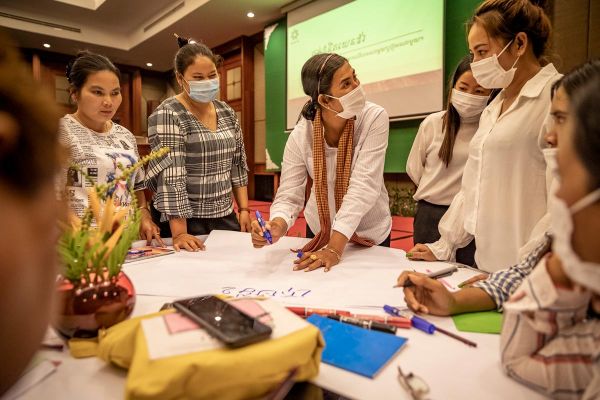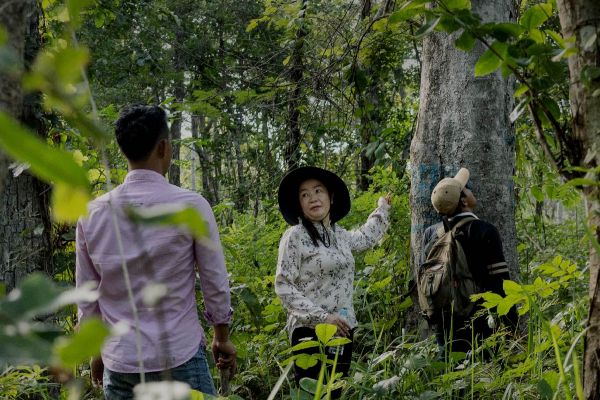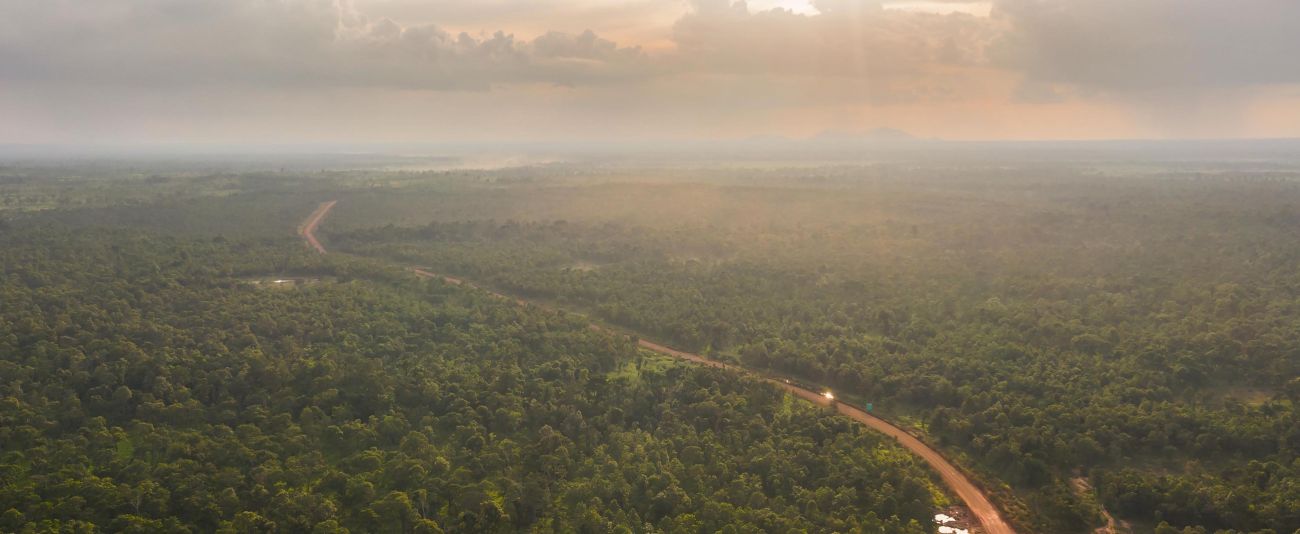
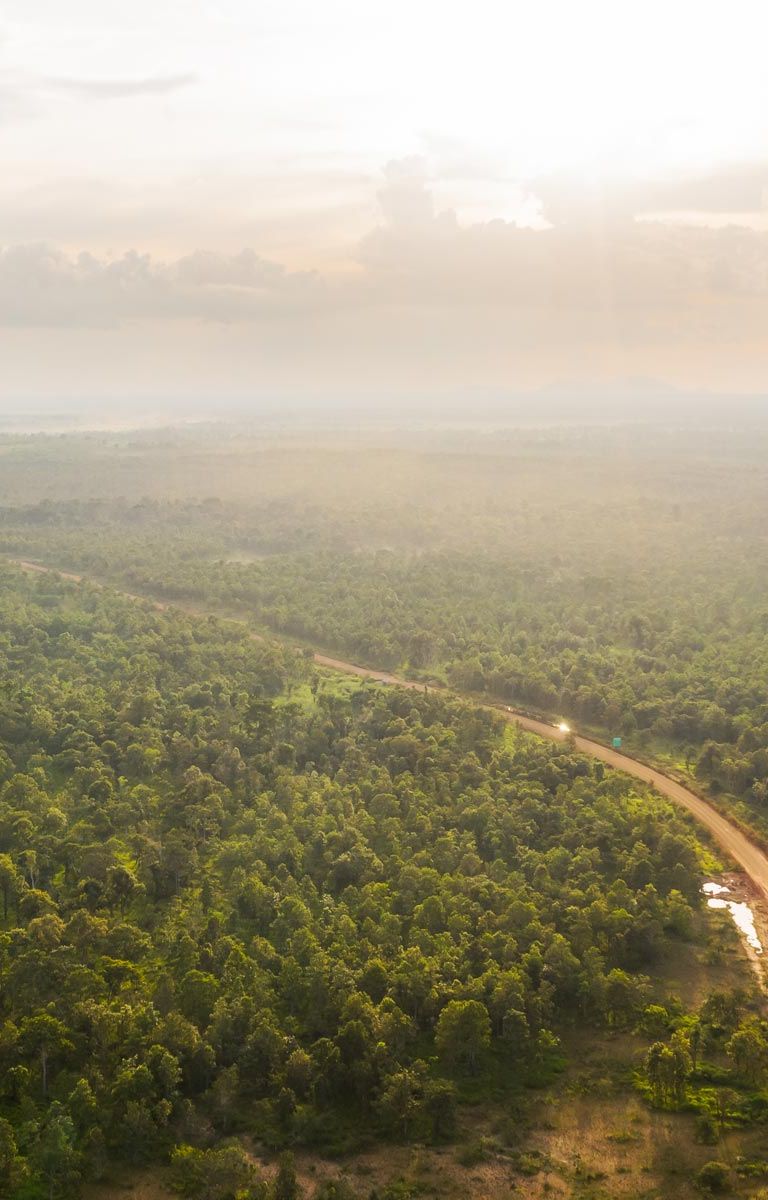
The Koh Samseb ecotourism area in Kratie Province gets its name from the 30 islands in the Mekong River that tourists can explore. Flooded forests, giant fish and more than 200 bird species are among the attractions. Initially supported by PaFF, a group of 16 villagers from local community forests and community fisheries continue to provide ecotourism services. In 2022, they welcomed 487 visitors and generated USD 9,600 in income.
“I am glad to work with ecotourism,” says group member Thida Horn. “My livelihood has improved a lot, and I can now provide for my two children who are studying in Phnom Penh.”
In June 2022, the group adopted a five-year development plan with guidance from PaFF. The plan covers training in hospitality, waste management and financial management, along with strategic actions to boost tourism through partnerships with tour operators and the development of new activities to attract visitors.
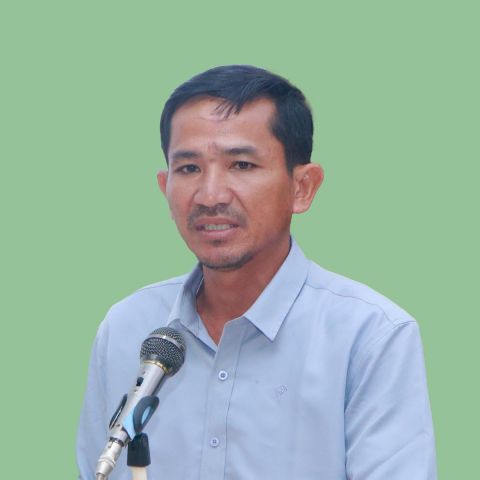
“The plan gives us vision. We know our priorities and what we can do and what support we need from others to help us to grow and attract tourists.” — Khut Samol, Chief, Koh Samseb
The plan, whose implementation will continue for three years after the closing of PaFF, is just one of the partnership’s legacies. Other enduring impacts include the large number of formalized community forests, fisheries and protected areas with approved management plans, strengthened capacities, improved livelihoods, supportive networks and mechanisms for sustainable finance. They provide a solid foundation on which the government of Cambodia, development partners and non-governmental organizations, including the PaFF partners, can build.
Enduring impacts
“By focusing on rights and responsibilities, PaFF has strengthened engagement and collaboration between the Cambodian government and local communities,” says Camilla Ottosson, head of Development Cooperation at the Embassy of Sweden in Phnom Penh. “This is evident in improved responses to community reports of illegality, greater participation by community representatives in policy processes and the approval by government authorities of communities’ management plans covering a large area of forests and fisheries.”
Cambodia’s natural resources are now better protected thanks to increased patrolling and reporting of crimes in the community forests, fisheries and protected areas. The credit schemes and trust funds that PaFF established provide more than USD 6,500 each month to support the management of these areas. They will continue to grow.
Another of PaFF’s enduring impacts is its empowerment of women to participate in natural resource management and related policy discussions. Women now occupy 30 percent of the management and leadership roles in community forests, community fisheries, community-protected areas and their credit schemes.
Ensuring continued success
In its final year, PaFF developed a sustainability plan aimed at ensuring that its interventions and positive results will continue. The partnership also documented its experiences and lessons learned. It created a webpage that provides researchers, policymakers, civil society organizations and community groups with information on best practices for community-based natural resource management. The webpage includes a directory of all 155 community forests, fisheries and protected areas with which PaFF worked. This will enable funders and other organizations to identify future partners and recipients of support. The webpage will be made available to the public in September 2023.
Challenges remain, such as engaging young people in natural resource management and patrolling and addressing the threats that climate change poses to agriculture, forestry and fisheries. Although management plans for community forests, fisheries and protected areas have incorporated climate change risks and vulnerability analysis, resource constraints pose implementation challenges.
Looking ahead, sustained support and enabling policies are crucial to further strengthen networks, empower patrol teams, expand credit schemes and mini trust funds, integrate community-based natural resource management with local development plans and ensure that community-based enterprises are viable.
Funding, capacity-strengthening and engagement of youth will be essential to ensuring the long-term success of Cambodia's community-based natural resource management initiatives, preserving the country's rich natural heritage for future generations and empowering local communities to effectively manage and benefit from their forest and fishery resources.

